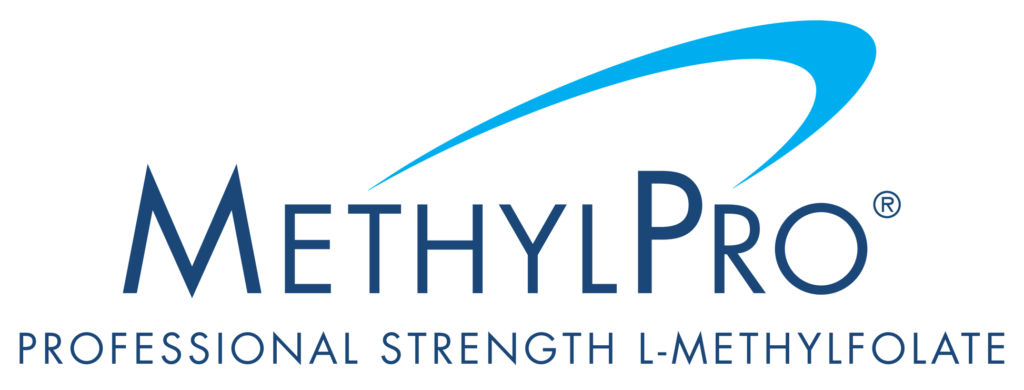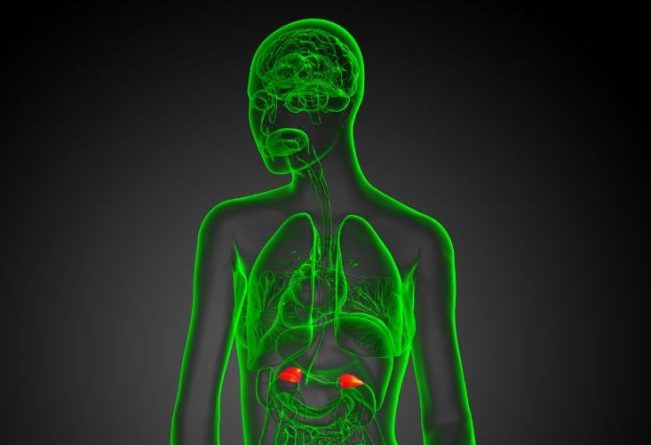Many people who supplement with methylfolate do so to support their mood and mental health. This is often because they have a mutation in the folate-processing gene, MTHFR, and stress, low mood, or anxious feelings related to the presentation of a methylfolate deficiency. These are similar to the symptoms associated with adrenal fatigue. Unfortunately, the underlying cause of mood imbalances and emotional shifts can be difficult to pin down and are often multifaceted.
There is some controversy around the term “adrenal fatigue” as it is hard to define or diagnose. In fact, much of Western medicine doesn’t recognize this diagnosis. However, the phenomenon of chronic stress taking a toll on the body is very real to those experiencing it.
Maybe you believe you are suffering from “adrenal fatigue”. Maybe you just feel run down from stress. Either way, we have some suggestions for nutritional support that can complement your methylfolate supplement. Chronic stress is all too common. It can be difficult to recover from a mood imbalance when your body is struggling with stress in other ways.
Adrenals
As the adrenal glands are responsible for the production and release of stress hormones. It follows then, that they can be taxed or overworked by stress levels that stay high for an extended period of time. For some, this adrenal fatigue presents as a chronic feeling of exhaustion that doesn’t go away with sleep. Others notice changes in appetite and weight gain, and some experience a general “burnt-out” feeling and apathy.
In order to make and metabolize hormones like cortisol, the body needs building blocks for the hormone molecules, energy to power production, and the ability to recover from cellular damage caused by stress. Adrenal supplements contain nutrients that support adrenal function by boosting the availability of building blocks, energy, and antioxidants for repair.
Adrenal Support Supplements
Vitamin C
In most mammals, the stress response is characterized by activation of the HPA axis and the adrenal glands, as well as the increased synthesis and secretion of vitamin C [1]. Cortisol, catecholamines, and vitamin C work synergistically to increase blood flow, maintain immune function, and prevent and repair damage from oxidative stress. Humans (and anthropoid apes) cannot synthesize vitamin C and therefore have an impaired stress response. We need vitamin C from our diet, in sufficient quantities, to maintain a healthy stress response.
The adrenal glands contain one of the body’s highest concentrations of vitamin C. If there is any kind of deficiency in the diet, the adrenals suffer. Vitamin C is a cofactor in the synthesis of adrenal hormones. It is necessary for production of catecholamine neurotransmitters such as cortisol, epinephrine, norepinephrine, and dopamine.
One of the symptoms of adrenal fatigue is an under-functioning immune response. Vitamin C is known to be an immune booster that can help fight off unhealthy inflammatory response.
Vitamin C is also a powerful antioxidant. Oxidative stress, an imbalance of free radicals and antioxidants, can trigger or aggravate adrenal fatigue. Vitamin C can aid in reducing oxidative stress and limit the action of the stress hormone, cortisol.
Evidence from human clinical trials has shown that oral vitamin C can attenuate blood pressure, cortisol levels, and subjective responses to psychological stress [1]. It has also been shown to improve mood and quell anxious feelings [2].
Glutathione
While vitamin C works on an extracellular level, glutathione works on an intracellular level. Together they work synergistically. Glutathione is known as “the Master Antioxidant” as it recharges or recycles other antioxidants. Once vitamin C has donated electrons to free radicals, glutathione can enable vitamin C to donate again. This extends its life as an antioxidant.
Your body does make glutathione naturally, but under certain conditions, such as stress, glutathione production drops. A glutathione supplement is a terrific way to boost circulating levels of glutathione when your body needs it, but can’t make enough.
Glutathione is also an excellent detoxifier. It helps clear out toxic metabolites, xenobiotics, lead, mercury, and pesticides [3].
MetaCalm®
If you’re interested in a formula containing lots of nutrients that support the body in times of stress, look no further than MetaCalm®. Among other nutrients, MetaCalm®, by Metabolic Maintenance, contains vitamin C, methylfolate (vitamin B-9), vitamin B-6, vitamin B-12, inositol, magnesium, GABA, taurine, and L-theanine. Together, these nutrients are not just designed for recovery and repair, but also to promote natural relaxation systems and a sense of calm in the body.
We’ve already boasted the powers of vitamin C for stress and adrenal health, but vitamin B vitamins are extremely important too. Your body uses B vitamins at a faster rate when you are stressed, and therefore intake requirements are higher [4]. Vitamin B-12, specifically, plays a role in the adrenal gland’s cortisol response to stress, and likely must be replenished in case of adrenal fatigue [4].
Inositol is a natural relative of B-complex vitamins, and it helps to relieve tension and to encourage better sleep [5]. It is also a mood lifter [5]. Inositol is naturally found in fresh produce, red meat, and whole grains, but because a lot of it can be in the form of fiber, it is sometimes not fully absorbed. Supplementation is a great way to bypass this issue.
Subclinical magnesium deficiency is one of the most prevalent mineral deficiencies, affecting over half of the adult population in the US [6]. Because it is a cofactor in over 300 enzymatic reactions, and it is crucial for the utilization of cellular energy, deficiency is a major health issue.
It may seem counterintuitive because magnesium deficiency can leave you feeling fatigued, but magnesium supplementation can also help in the evenings to calm your body in preparation for sleep [7]. It is involved in your body’s natural relaxation pathways and can help tense musicals release, which makes it a great stress support and adrenal supplement. Restoring and maintaining healthy magnesium levels can contribute to restful, better-quality sleep, so you wake feeling refreshed and energized [7].
PS-100
Phosphatidylserine (PS) is an element of nerve cell production and it’s often taken for memory support. It can also help to reduce cortisol levels when the body is under stress [8]. It is especially useful for those who have difficulty falling asleep due to high nighttime cortisol.
The dosage frequency can be challenging, as, for many, multiple doses timed throughout the day are necessary, depending on how fast the body metabolizes this chemical. Talk to your doctor about finding the right supplementation regimen for you.
Probiotics
While not specific to adrenal support, probiotics are a fantastic way to support your adrenal function within the scope of your general health. Dysbiosis (the imbalance of the gut’s microbiome) is common in adrenal fatigue, as gut flora is very sensitive to both stress hormones and unhealthy diets.
When the gut’s microbiome is out of whack, inflammation tends to follow. Inflammation is at the root of many health issues and takes away needed energy and attention from the recovery of the adrenals. A healthy gut biome produces natural anti-inflammatories and antioxidants, and a healthy gut can better absorb nutrition for energy and repair [9,10].
You can get probiotics from fermented foods like kimchi, sauerkraut, yogurt, and kefir. Alternatively, you can take a probiotic supplement to help balance the microbiome and boost the populations of specific strains of beneficial microbes in the gut.
Lifestyle Tips
If you are experiencing adrenal fatigue or burnout from chronic stress, the best thing you can do is remove some or all of the stressors. Take some time to really think (maybe journal) about what is stressful in your life, and see where you can feasibly make some changes. Your health should be priority #1.
Of course, if it’s work stress or family stress, it’s not reasonable to remove work or family from your life. It may be reasonable, however, to add some activities that help relieve or balance out some of the stress that work or family create.
Connection, friendship, or social interaction with people who calm us or bring joy is so important for mental health [11]. If you don’t have any good friends nearby, try signing up for a class or recreational activity where you will meet peers with similar interests.
Even a regularly scheduled zoom chat with a faraway friend can be something to look forward to on a weekly basis and can promote similar neurotransmission to real-life hangouts.
Regular exercise is important for all aspects of your health, adrenal health included. Exercise is a natural stress reliever, as it decreases cortisol levels and boosts endorphins [4]. Endorphins can help increase comfort with movement, boost your mood, and help you sleep [4]. As endorphins increase, your stress levels decrease. So while you may be feeling tired from your adrenal fatigue, exercise can actually help boost your energy during the day and give you a more restful night’s sleep at night.
Of course, no amount of exercise or nutrition boost can rid you of the stress caused by your thoughts and emotions. If you are having trouble managing toxic thought patterns, resentment, or overwhelming emotions, working with a therapist may be an essential part of your adrenal recovery. You can start right now, however, practicing mindfulness, gratitude, journaling, and creating art. These are all fantastic ways to release emotion on your own.
References
- https://www.ncbi.nlm.nih.gov/pmc/articles/PMC7024758/
- https://europepmc.org/article/med/26353411
- https://www.sciencedirect.com/science/article/abs/pii/S0045653518310403
- https://www.drcsahni.com/adrenal-abcs
- https://inofem.trustpharm.co.il/wp-content/uploads/2022/12/1.3.pdf
- https://academic.oup.com/nutritionreviews/article/76/7/526/5033819
- https://pubag.nal.usda.gov/catalog/58074
- https://www.wageningenacademic.com/doi/abs/10.3920/CEP210044
- https://www.sciencedirect.com/science/article/pii/B9780128121023000191
- https://www.frontiersin.org/articles/10.3389/fbioe.2020.537847/full
- https://srcd.onlinelibrary.wiley.com/doi/abs/10.1111/cdev.12905

